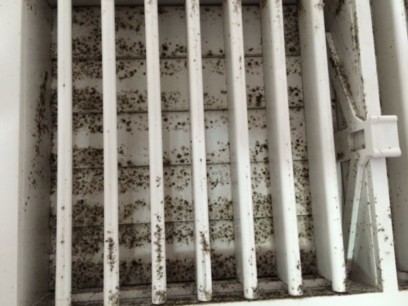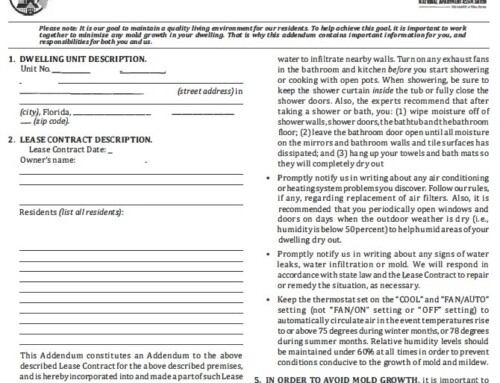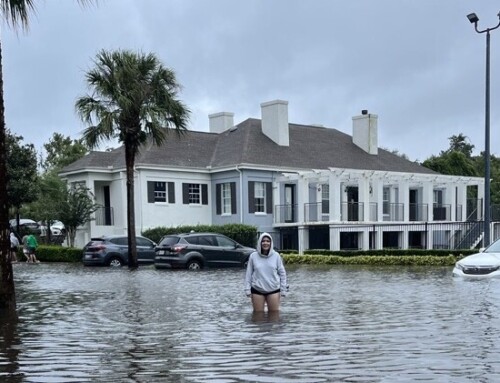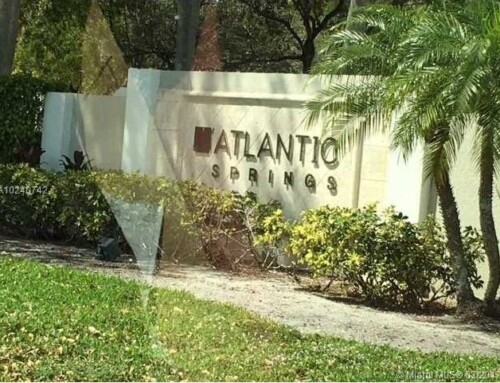We often receive phone calls from potential clients inquiring whether the air conditioning system in their home could be the cause of mold exposure related health symptoms. Mold typically develops in air conditioning systems when the system is not regularly maintained, including the regular changing of the air filters and cleaning of the evaporator coils. Mold will also develop if the air conditioning equipment is not properly dehumidifying the air. Some signs that your air conditioning system may be circulating mold in your home is if you smell a strong mold/musty type odor when you run the air conditioning, if the home feels unusually humid, if your monthly electric bill is higher than normal, if you see dark circular spots on the air conditioning vents, or if you are seeing mold/moisture splotches on your furniture and/or clothing (often found in closets which are not properly ventilated).
Reasons Why Air Conditioning (HVAC) Equipment Form Mold:
- The HVAC system is not efficiently removing humidity from the air. This is usually caused by older systems that are near end of life and need to be replaced. It can also be caused by dirty filter and coils which prevents the system from operating efficiently and properly dehumidifying the air. Normal humidity levels should be between 40 – 60% relative humidity. Levels about 60% relative humidity can result in the development of mold in the home. In addition, it is recommend that the air ducts being cleaned in accordance with NADCA standards on a regular basis and the ducts should be replaced if they are unable to be cleaned or are too old.
- The HVAC system is too large (too high a tonnage) for the number of square feet that system is cooling. If the AC system is rated to cool more square feet than it actually needs to, the system will shut off after the air is cooled to the desired temperature, but before the system can fully dehumidify the air. Air that is not fully dehumidified and has a humidity above 60% – 65% relative humidity can and often does cause humidity problems in Florida homes which results in the formation of mold.
- Holes in or around the AC return area can also cause the air conditioning equipment to draw overly humid air from other areas of the house such as attics or garages into the system and the air conditioning equipment may not be able to keep up with the amount of dehumidification that is being asked of the equipment.
What to do if Air Conditioning / HVAC Equipment is Not Functioning Properly Resulting in Mold Growth
First, document the mold growth with photographs of any visible mold found inside your home. Second, contact a licensed mold assessor to perform sampling of the air in your home. The mold assessor can also take a surface sample of any visible mold in your home. Third, if the mold assessor is not qualified to test your air conditioning equipment, hire a licensed air conditioning contractor to determine what is causing the HVAC system to fail to properly dehumidify the air in your home. The contractor should take pictures of the inside of the condenser unit and the coils as well as measure the relative humidity in the home. The contractor can also measure the amount of air flow as well as the temperature of the air coming into and leaving the HVAC system.
Send Written Notice
Once you have a diagnosis of the problem with the HVAC system, you should provide your landlord a written seven-day notice to cure and contact our office to discuss your legal rights in the event the landlord fails or refuses to correct the problem. The only way to protect your rights under Florida law is to ensure you provide written notice to the landlord and make sure you can prove that the letter was received. Do not wait for the landlord to take action. Send out your notice as early as possible. For more information on providing written notice to a landlord, please see our blog article on this important subject by clicking here.
Contact Us if you Believe your Air Conditioning System is Causing the Formation of Mold in Your Home
Of course, with every situation, there may be exceptions and differing facts which require the analysis of a mold attorney. The Mold Lawyers at Militzok & Associates offer a FREE consultation to discuss the unique facts of your mold claim with our experienced attorneys. For more information, call us at (954) 241-2260, send an e-mail to info@themold.lawyer.
Militzok & Associates are toxic black mold attorneys who are proud to represent individuals and families throughout South Florida who are suffering injuries from mold exposure, musty smells and other types of indoor air quality issues. We represent clients in the following cities of Fort Lauderdale, Pompano Beach, Coral Springs, Davie, Plantation, Weston, Miramar, Sunrise, Coconut Creek, Dania Beach, Lauderhill, Margate, Parkland, Deerfield Beach, Oakland Park, Hallandale, Pembroke Park, Pembroke Pines, Hollywood, Cooper City, Tamarac, Wilton Manors, Lauderdale Lakes, North Lauderdale, Lighthouse Point, Southwest Ranches, Hillsboro Beach, West Park and Pembroke Park.
We also represent clients in Miami-Dade county in the following cities: Miami, Miami Beach, Hialeah, Homestead, Coral Gables, Doral, North Miami, Aventura, North Miami Beach, Aventura, North Miami Beach, South Miami, Miami Gardens, Key Biscayne, Sunny Isles Beach, Pinecrest, Miami Lakes, Opa Locka, Cutler Bay, Sweetwater, Palmetto Bay, Miami Springs, Miami Shores, Florida City, Surfside, Bay Harbor Islands, North Bay Village.
In Palm Beach County, we represent clients from South Bay, Golf, Manalapan, Briny Breezes, Greenacres, Magonia Park, Hypoluxo, Highland Beach, Lark Clarke Shores, Belle Glade, Pahokee, Glen Ridge, Tequesta, Atlantis, Loxahatchee Groves, Palm Beach Shores, Haverhill, Gulf Stream, South Palm Beach, Cloud Lake, Juno Beach, Palm Springs, North Palm Beach, Wellington, Lake Park, Lantana, Palm Beach Gardens, Jupiter, Riviera Beach, Boynton Beach, Jupiter Inlet, Ocean Ridge, Palm Beach, Royal Palm Beach, Boca Raton, West Palm Beach, Lake Worth, and Delray Beach.
We are now accepting cases throughout the State of Florida in cities such as Tampa / St. Petersburg, Clearwater, Orlando, and Naples / Ft. Myers areas.






Leave A Comment